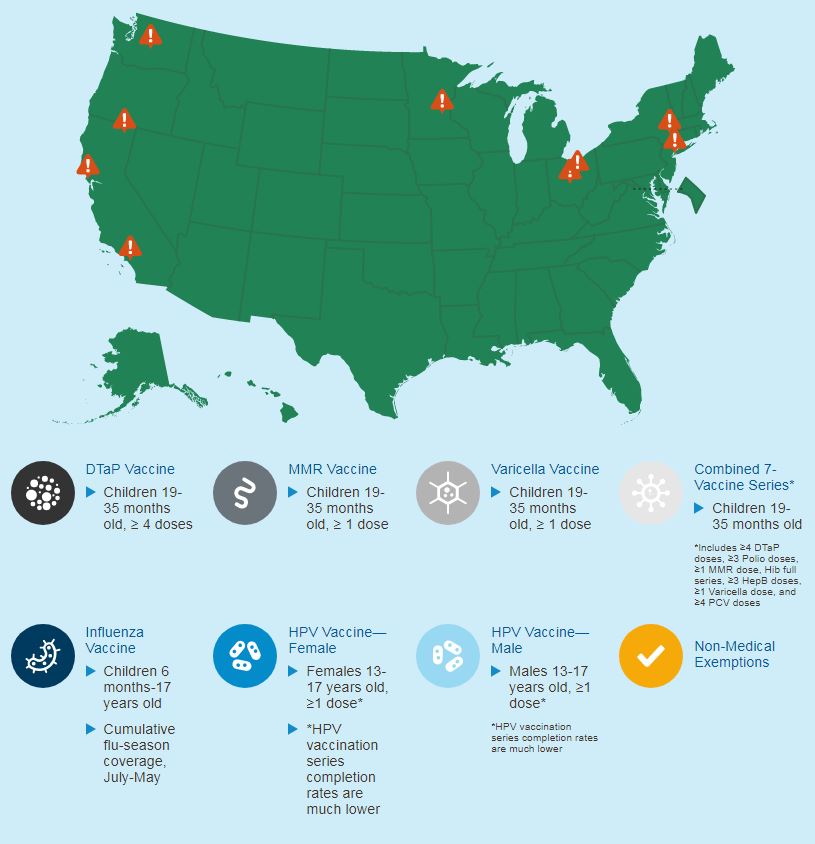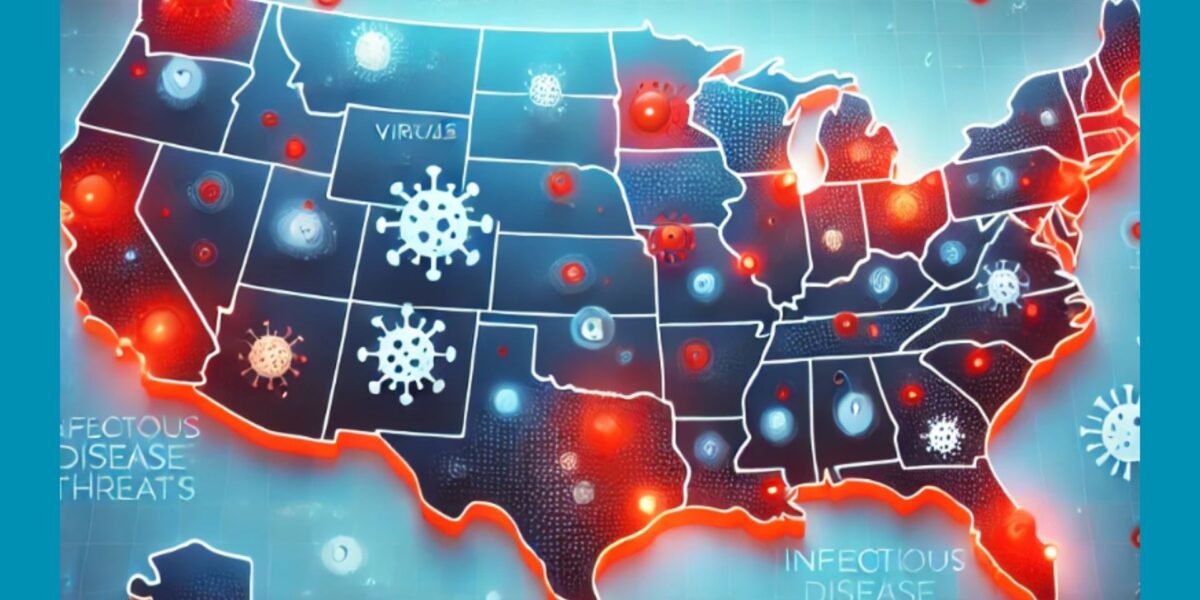
To highlight the importance of immunization across the lifespan, NFID is hosting a 2017 National Immunization Awareness Month (NIAM) blog relay, featuring a weekly guest post from an immunization champion/organization. Each week of #NIAM17 focuses on a different stage of the lifespan. 
Special thanks to Wendy Sue Swanson, MD, MBE, pediatrician, author of Seattle Mama Doc blog, and Chief of Digital Innovation at Seattle Children’s Hospital, for this guest post about the importance of vaccination during childhood.
From the moment we become parents, we work to keep our children’s environment safe. We child-proof our homes and make sure poisons and dangerous objects are secured wherever our kids spend time. But we aren’t always as diligent about making sure the community spaces where our children learn and play are protected from threats we can’t see, like infectious diseases.

As our children get ready to head back to school, we can reduce the likelihood of exposure to a vaccine-preventable disease by contacting our schools to review their vaccination rates. Not just for the state-mandated vaccines, but for influenza vaccines too. Often, we have no idea the actual percentage of a class that is protected with this essential, annual vaccine.
Influenza (flu) and complications from the infection are hardest on infants and young children, pregnant women, the elderly, and those with underlying health conditions that make it harder to deal with the infection. Depending on the season, influenza causes anywhere between 4,000 and 50,000 deaths a year in the US. Thankfully, each year only a couple hundred of those deaths are among children. The flu vaccine is recommended for ALL infants and children ages 6 months & up to protect them from the infection, their community, and severe complications.
More than ever before, clearly articulating that you vaccinate your child and that you want your child amid a group that does the same is essential.
Every parent should know if their child resides, learns, and plays in a safe environment, and knowing their child’s “world” is up-to-date on vaccines is an important data point. Knowing where your community stands just got a little easier. The American Academy of Pediatrics (AAP) recently created an interactive infographic which provides a high-level view into knowing how your state fares on vaccination status and protection against outbreaks of infections like measles and pertussis (whooping cough), as well as influenza.
 Although 9 out of 10 parents immunize their children based on the recommended immunization schedule, we know the public often feels like many more children aren’t getting vaccines. I’m haunted by the data published in Pediatrics in 2011 that found that more than 1 in 4 parents (28%) who followed the recommended schedule seemed to think those children whose parents didn’t—who delayed vaccines or followed a non-standard schedule—were safer. Not a single study finding a delayed or non-standard schedule is safer and yet here we are with many parents following our recommendations but not entirely trusting them. Yuck. All those parents who immunize need to speak up.
Although 9 out of 10 parents immunize their children based on the recommended immunization schedule, we know the public often feels like many more children aren’t getting vaccines. I’m haunted by the data published in Pediatrics in 2011 that found that more than 1 in 4 parents (28%) who followed the recommended schedule seemed to think those children whose parents didn’t—who delayed vaccines or followed a non-standard schedule—were safer. Not a single study finding a delayed or non-standard schedule is safer and yet here we are with many parents following our recommendations but not entirely trusting them. Yuck. All those parents who immunize need to speak up.
To me, there is no question that a pediatrician’s time and passion communicating truths and opportunities with vaccines will always be time well spent. Data published in 2016 proves it: 1/3 of vaccine-hesitant parents changed their mind and agreed to have their child receive a vaccine after their doctor provided vaccine education. But there is something else in me that knows, over time, we’ll tighten the gap on trust with parents when their peers step up and demand higher vaccination rates in their schools, their playgrounds, their communities, and even their play dates. When pro-vaccine parents share their feelings of trust, support, and desire to have a community up-to-date, that’s when we’ll reach the 95% level we want.
Knowing where you live and how your community is doing on vaccines and speaking up about what you believe matters. More than ever before, clearly articulating that you vaccinate your child and that you want your child amid a group that does the same is essential. Check out your state’s data in the AAP infographic and watch this short video I did with BBC News reviewing common vaccine questions and concerns.
Pediatricians and parents can now partner with tools unlike we’ve ever had before to make sure the spaces where our children spend their days are as safe as possible. Speak up, ask about rates at your schools, and tell other parents how much you value vaccines that protect your children and their friends.
To join the conversation, follow NFID (@nfidvaccines) and Wendy Sue Swanson (@SeattleMamaDoc) on Twitter using the hashtag #NIAM17, like NFID on Facebook, follow NFID on Instagram, join the NFID Linkedin Group, and subscribe to NFID Updates.
Related Posts

News Round-Up: Infectious Disease Threats
According to NFID website poll, there are several worrisome infectious disease threats. Read recent news on topics of greatest concern, including avian influenza (bird flu), measles, and respiratory syncytial virus (RSV) …

Vaccines and Heart Health: A Vital Connection
Heart disease can increase the risk of serious or fatal complications from respiratory diseases including COVID-19, flu, and RSV

Harnessing the Power of Local Data
NFID dashboard aims to empower stakeholders with hyperlocal data to increase US adult respiratory vaccine uptake
